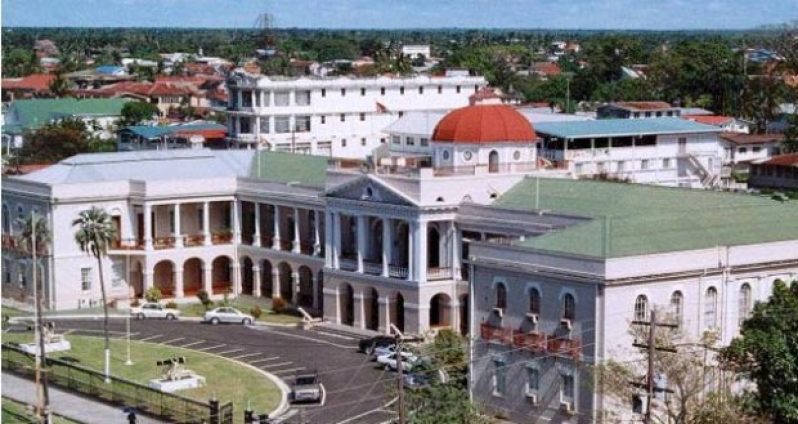EXECUTIVES of the ruling People’s Progressive Party (PPP) are expected to formally meet to discuss the no-confidence motion moved against the government by the minority Alliance for Change (AFC) Party and submitted to the National Assembly via its Clerk, Mr. Sherlock Isaacs. This is according to Party General-Secretary, Mr. Clement Rohee at a press briefing yesterday at Freedom House, where, in answer to a particular question on the subject, he said, “Our executives will have to meet and discuss on that.”
The first inkling the public had that the AFC planned moving a no-confidence motion against the Government was way back in mid-June, when Party Vice-Chairman, Mr Moses Nagamootoo hinted at it.
He did so by way of an article published in the Stabroek News and headlined, ‘AFC considering no-confidence motion against Gov’t’. He, however, acknowledged that to do so would require the support of the Main Opposition, A Party for National Unity (APNU).
The AFC finally got its wish on Tuesday, August 5, when APNU Leader, Brigadier (rtd.) David Granger, publicly confirmed that his Party was fully behind the no-confidence motion.
The first page of the Motion reads: “Be it resolved that this National Assembly has no confidence in the Government.”
Last Friday, President Donald Ramotar, rather than commit himself to a definitive answer, simply stated that any decision related to the no-confidence motion, including the possibility of calling snap elections, will be made “at the appropriate time.”
According to the pundits, should snap elections not be called before a debate on the Motion, the current administration is expected to be disbanded in preparation for a return to the polls.
As stated in Section 106 (6) of the Constitution: “The Cabinet and President shall resign, if the Government is defeated by the vote of the majority of all Members of the National Assembly on a vote of confidence.”
This is made even clearer in Section 106 (7), which states: “Notwithstanding its defeat, the Government shall remain in office, and shall hold an election within three months, or such longer period as the National Assembly shall, by resolution, supported by no less than two-thirds of all elected members of the National Assembly, and shall resign after a new President takes the oath of office following the election.”
The last time general elections were held in Guyana was in November 2011.
(Vanessa Narine)



.jpg)








